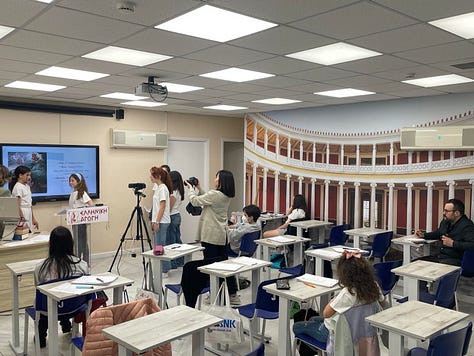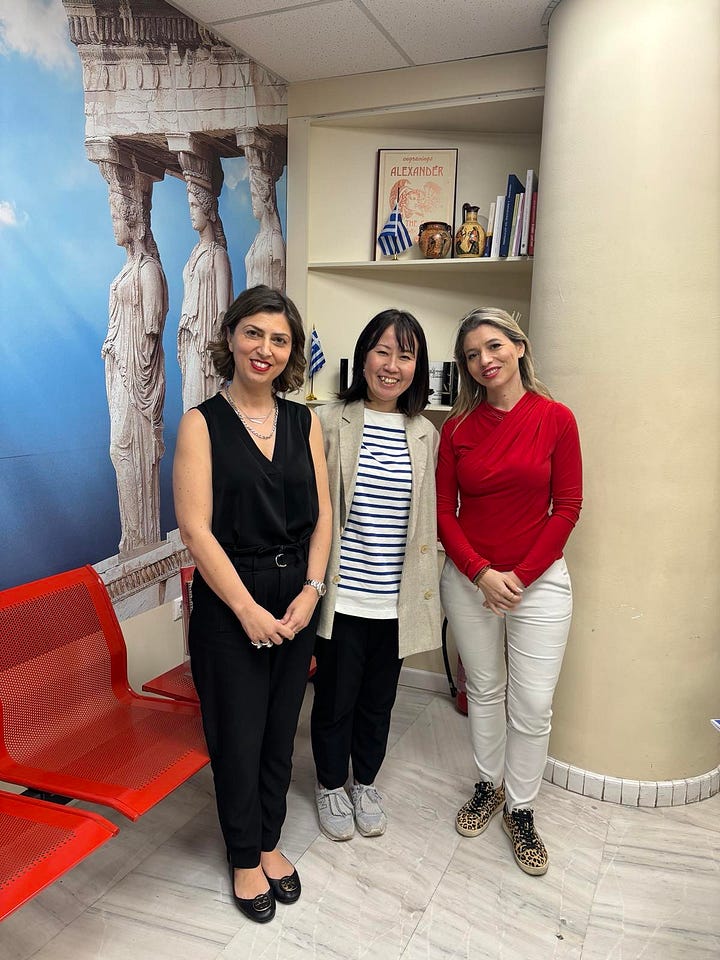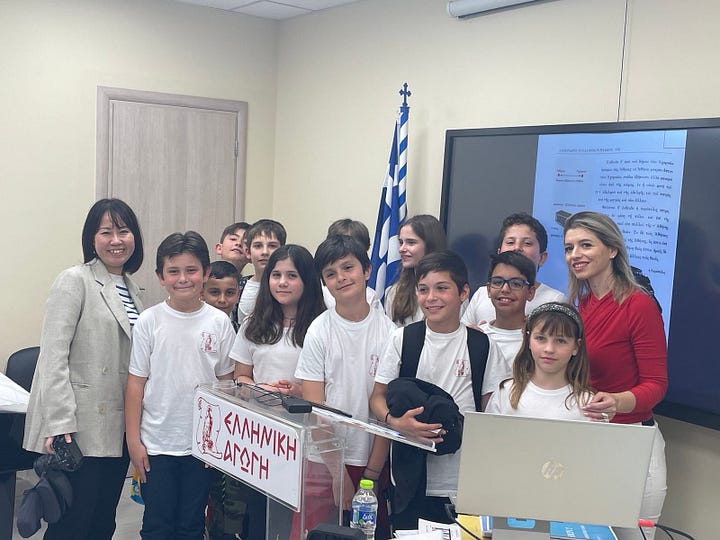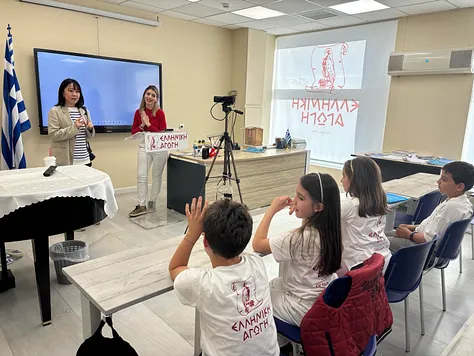



We are deeply honored by the presentation of our school in a feature article in Yomiuri Shimbun, Japan’s largest newspaper, written by Rome correspondent Yumiko Kurashige, who recently visited Elliniki Agogi in Athens.
The article describes the teaching of Ancient Greek to both children and adults, and the school’s deep connection with mythology, philosophy, and the roots of European civilization. From the group recitation of The Odyssey to the dramatization of Greek myths, the report highlights our educational philosophy and underlines the significance of Ancient Greek as a foundation of European thought and language.
It also touches on the history of Elliniki Agogi, our mission to strengthen students’ cultural identity, and the growing impact of our work both in Greece and internationally.
As journalist Yumiko Kurashige writes:
“Children learn the ancient language naturally and experientially, through song, theatre, and storytelling. In this way, they cultivate both their love of learning and their love for Greece.”
We warmly thank Ms. Kurashige for her visit and for this wonderful article.
Full Article (Translation)
On the third floor of a building in the center of Athens is Elliniki Agogi, where Ancient Greek and related subjects are taught. One afternoon, children in matching T-shirts arrive in groups. On the classroom walls hang images of archaeological monuments.
“Tell me, Muse, of the man of many turns…”
Thus began the class of the youngest students with a recitation—in Ancient Greek—of the opening lines of Homer’s Odyssey. In the adjacent, more advanced classroom, small student groups took to the stage to perform scenes from Greek mythology—again, entirely in Ancient Greek. All communication in the school takes place in the ancient language.
After a 90-minute class, eight-year-old B.L. exclaimed with sparkling eyes:
“I love learning through songs and games. Now I’m interested in other subjects too!”
The school was founded in 1994 with the aim of reviving and reappreciating Ancient Greek—a response to the language’s marginalization in modern education. Although Greece is filled with ancient ruins—often visible on every street corner—state schools place greater emphasis on foreign languages. English is mandatory from the first grade of primary school and often introduced in kindergarten. From the fifth grade onward, students are also required to study a second foreign language, such as French or German.
In contrast, Ancient Greek is introduced only from the first year of junior high school—and after foreign languages. In the 2010s, under a left-wing government, there were even calls to abolish the subject entirely.
Elliniki Agogi began with just 20 students. Today, it has approximately 3,000 learners in Greece and abroad, including online students. The school attracts students of all ages and is also popular among adults as a center for supplementary education.
Children acquire the language naturally from an early age through music, theatre, and creative expression. As a result, they deepen their understanding not only of the language itself but also of mythology, history, and philosophy. Teachers emphasize that Ancient Greek forms the root of many European languages and helps in the learning of modern foreign languages.
In a country still facing economic challenges, many young people turn to opportunities abroad. But as teacher Sophia Goula, herself a former student of the school, explains:
“We want children to develop a love of their country by learning about Greece’s history and their own roots.”
Report by Yumiko Kurashige
